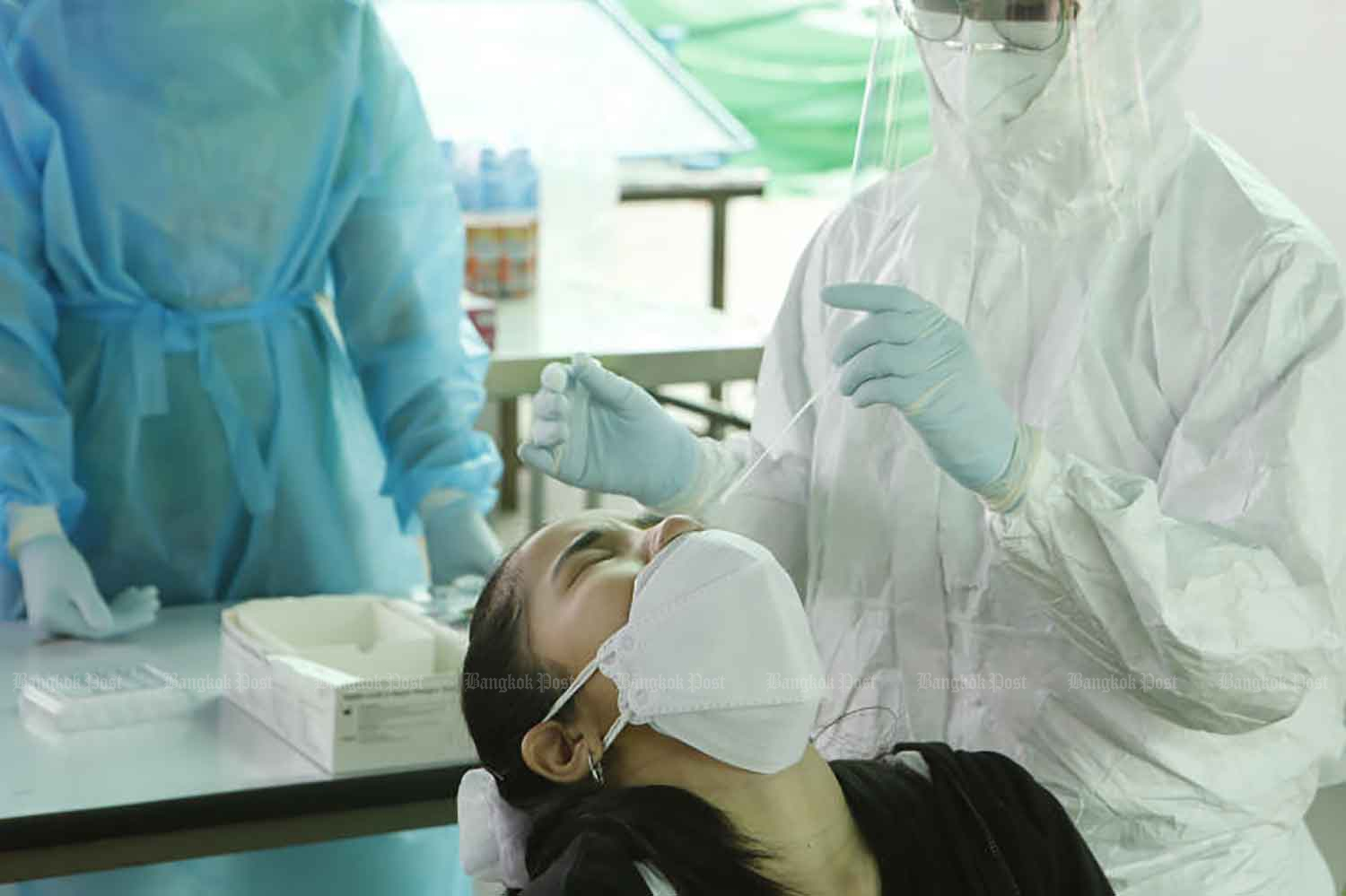
Thailand currently remains free of the Mu coronavirus variant, said the Ministry of Public Health while dispelling concerns over reports it is potentially more resistant to vaccines.
Dr Supakit Sirilak, chief of the Department of Medical Sciences, told reporters at a press event on Monday that the department and its alliance had found no Mu infections in the country and that the Delta strain remains the prevalent Covid-19 variant.
He said that the Mu variant (B.1.621) only makes up less than 0.1% of the world's cases but it has been found in at least 39 countries, including in the US, the UK and Japan.
The World Health Organization (WHO) named Mu as a variant of interest last month due to it possibly being vaccine-resistant. Meanwhile, the strains of Delta, Gamma, Beta and Alpha are on the list of variants of concern, because of their high ability to spread.
Dr Supakit said there has also been no detection in Thailand of the C.1.2 variant, which is not listed by the WHO as either a variant of concern or interest due to it only making up 3% of cases in South Africa.
"The two variants have no confirmed evidence for their ability for faster transmission or to reduce the vaccines' efficiency. So please do not panic and we will closely monitor the situation," he said.
According to the department, the Delta variant makes up 97.6% of Covid-19 cases in Bangkok, with the rest being the Alpha variant. Outside of the capital, Delta makes up 84.8% of cases, followed by 9.5% of Alpha and 5.7% in Beta, which is only found in the far South. Last week, the department found 28 Beta cases in Narathiwat, two in Pattani and one in Yala.
Dr Supakit further added that the department is aiming to collect at least 10,000 Covid-19 samples from more varied groups by the year's end, especially in Phuket province, so as to conduct whole genome sequencing which will assist in gaining a better understanding of vaccines' performance against the virus.
"We are working in close cooperation with our partners from Prince of Songkla University in conducting whole genome sequencing in the South," he said. "We have planned to get more samples from Phuket where there is a high rate of vaccination. At least 10,000 samples will be decoded by the end of this year."
